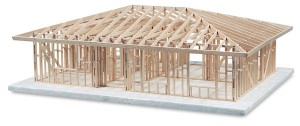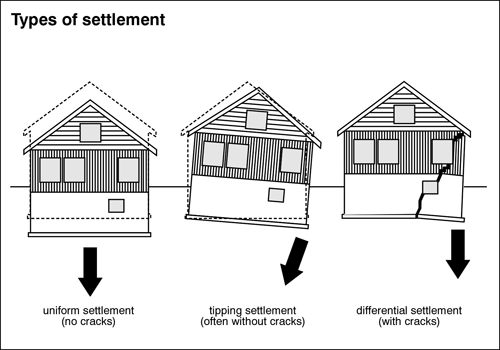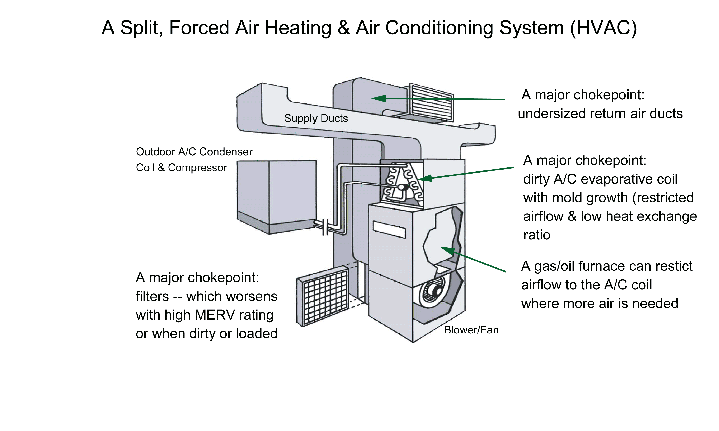Electrical
Electrical systems in homes are very complex and potentially dangerous. The Electrical system causes more deaths every year than any other single system. Is it the electricity causing the deaths or neglect and unsafe practices? Seven Stars Home Advisors will always check the electrical supply where it enters your home. We will describe to the best of our ability the capacity and any variance that may be present. Once the main Electric panel is inspected and deemed safe the inspector will move indoors and inspect all of the other major components that comprise your homes electrical system. All safety issues will be acknowledged. An inspector will review whether the panel appears to be in a safe, operable condition and whether it has sufficient energy for the appliances and energy consumption typical of a modern home.
Plumbing Inspection
Plumbing is considered a major system within a home, Seven Stars Home Advisors will examine faucets, showers, sinks and tubs to make sure all receive water and get rid of waste effectively. Your inspector will also describe for you what kind of piping is used in your house from the inlet to the supply piping that serves your ice maker. There are some materials that have been used for plumbing that have some inherent problems and your inspector will be able to determine those and find any potential issues that may have derived from them. Your inspector will examine leaks as well and determine if it is normal or a potential problem. Obviously leaking water is a problem no matter where it is, but what we are referring to is if there is a pipe in the basement that has a leak in it, that is far more serious than the powder bath sink that drips twice an hour. Both will be in the report, but your inspector will be able to inform you of the importance of repairs in each.
There are several major types of piping: galvanized steel, copper or polybutylene plumbing – a kind of plastic piping linked with copper or aluminum fittings. Copper is among the most reliable and long-lasting plumbing material, and galvanized steel among the most challenging, especially if it is an older installation. Galvanized steel will rust from the inside out. This causes a multitude of issues which can be determined by your inspector. Polybutylene plumbing, which was installed between the 1970s and 1990s, has been found defective and buyers would be advised to research whether the seller will replace it or if they will qualify for funding available through class action lawsuit settlements to replace it.
Replacing distribution pipes can be very pricey, however making sure that the pipes that pass water and waste through your house are in good working order can save considerable money elsewhere. Plumbing issues are generally the main cause of water, mold and mildew damage in most homes. A good home inspection can prevent thousands of dollars in damage or repair.
Structure Inspection
When having a Seven Stars Home Advisors inspection, the inspector will walk around the outside of the building to get familiar with the houses structure. Part of this process is finding out how your home is interacting with the ground and everything around it; for example, trees or vegetation. One of the big things we as home inspectors look for is, “Does the yard slope away from the house?” Or, does it slope towards the house giving water and ice the chance to build up around the foundation causing damage to the “base” of your house. Your home inspector will look at the adjoining decks, sidewalks, and stairs. Not only to see if they have been installed correctly, but also to make sure they haven’t been installed in a manner that might harm your homes structure going forward.
Your Seven Stars Home Advisors Inspector will most likely start in the basement or crawl space. Most basements and crawlspaces are prone to moisture issues and water penetration. Not only can water get in from outside but all of your houses plumbing is generally located above these areas. Water can be present and not be catastrophic, however presence of water can also cause mold mildew to grow on other parts of vital systems within your home. Your inspector, will assess if these areas are in satisfactory condition and if they have been built and maintained in a manner that is in line with industry standards.
For the Roof, your inspector will determine what kind of material the roofing system is comprised of, whether it is properly installed and flashed to prevent moisture from entering the interior of the house. Your inspector will climb on the roof and do a comprehensive inspection to make sure the structure is protected. Obviously, there are cases particularly here in Colorado where there is snow or ice present, or the roof has an unsafe pitch, in these cases the home inspector does everything possible to effectively determine the state of the roof.
Lastly, for Structural Inspections your Seven Stars Home Advisors Inspector will describe what the exterior wall coverings are comprised of and if that wall covering is functioning in a manner that would protect your house. We also examine the doors and windows and ensure that they open and close properly and if they were in our opinion installed correctly base upon industry standards. Inspectors look at the structure in its entirety to make sure that it has not suffered any structural damage or damage caused by weather.
Electrical
Your Seven Stars Home Advisors Inspector will inspect all of the lighting on the inside, as well as, the outside of the home. A representative number of receptacles will be tested and any concerns will be reported. Grounding and reverse polarity are a concern, however, they are common and in most cases they are easy fixes. Appliances are included in this inspection. Some of these items use massive amounts of energy and determining whether or not they are grounded is valuable to the home owner.
If the home has electrical heat or electrically-driven air conditioning, the inspector will examine that component of the electrical system. In addition, he will look at electrical wiring to make sure the wires aren’t showing signs of cracking or aging that could spark fires or not properly conduct power.
Foundation
The foundation of a house or structure holds the structure in place and prevents it from moving along with the earth it either sits in or in case of some patio homes in Colorado, it sits on. The Foundation also helps protect against both cold and moisture. A foundation’s structure varies depending on when a home was built, the climate in which the home was built, and whether or not the home was built with a basement or a crawl space. Here in Colorado the majority of our homes have basements or crawl spaces. Cracks in a foundation can foreshadow structural issues and water leaks and in rare cases catastrophic failure. Often, cracks and unevenness are due to “settling.” Settling can be minor or more dramatic. It happens over time to almost all structures. That’s why when purchasing a new property, having a Seven Stars Home Advisor inspection could save potentially thousands of dollars.
During your Seven Stars Home Advisors Inspection, an inspector will determine which type of foundation your home has and check it for potential problems. Some homes have finished basements where the concrete foundation is covered up with framing and drywall. Determining foundation issues in these cases are obviously more difficult, but thankfully because of their nature any real foundation problem will be noticed somewhere else in the home. Cracked drywall or cracked floor tile can be an indicator.
It doesn’t matter what type of foundation your home is sitting on because there are several key signs that a home inspector looks for during the inspection. Foundations tend to crack or heave. Sometimes moisture will be present and you will have pooling and moisture penetrating small cracks in the walls. Some of this may be inevitable, especially in older homes, but the importance of having your Seven Stars Home Advisors inspector go through the inspection process with your home is that the inspector can help you determine the degree of danger or the importance and scale of repair that exists. Depending on the type of foundation you have, sealants and reinforcements can sometimes prevent major problems so that your homes foundation will last for years to come.
HVAC Inspection
Seven Stars Home Advisors Inspectors will review your home’s heating and cooling system, or its HVAC system, making sure they are operable, that the system is located in a safe area of the house, and noting its condition and past service and repair notes. With the heating system, the inspector will identify the system’s energy source (gas, oil, electric) and method used to conduct heat or air throughout the home, and also whether the home has proper ventilation, venting, and draft. In addition, the inspector will note whether the system’s distribution is functioning properly and if the controls are adequate.
With cooling systems, the inspector will also review whether they are operational. Most cooling systems have separate indoor and outdoor components, as well as, separate lines for gas and refrigeration functions.
As part of the inspection, the inspector will review whether heating and cooling systems show signs of functional difficulty, damage, or excess wear. The inspector will review water heaters, oil furnaces, and electrical baseboards for signs that these heating mechanisms are malfunctioning. The inspector will also indicate the age on current heating and cooling systems and some of the care and maintenance responsibilities you’ll need to keep track of on a regular basis
For instance, if you are buying an older home or one that is currently oil-heated, an inspector will examine the oil furnace for signs of excessive wear. Separately, you will want to ask the seller if the oil tank (usually buried underground on the property) has ever leaked. If the home was converted from an oil heating system to another source of heat, inspectors will visually examine whether the former tank was properly decommissioned. If you are buying a home with a boiler, an inspector will examine its condition. Boilers heat water and then use that water to heat and distribute warmth from gas, oil, electrical or other forms of fuel throughout the home. An inspector will conduct a visual review of the boiler (which in some older homes is insulated with asbestos materials), verify that all rooms have a heat source, and assess the boiler’s condition.
Interior Inspection
Once your Seven Stars Home Advisors Inspector has reviewed the home’s exterior, it’s time to move this examination to the inside. Here we look at the structure we inspected from the outside, from the inside. Are the ceilings wavy or bowed? Are the support columns in the basement loose? Do the floors sag or do they feel solid. We also look at safety, we look at clearances to combustibles, we look at handrails and if they provide the proper safety for trips up and down the stairs. We take note of visible repairs, and all safety issues.
A review of the home’s interior also includes a review of heating and air conditioning systems, how air is distributed throughout the property, whether windows function or not for air flow, insulation, and electrical components – noting whether electrical outlets are properly functioning, whether there are signs of leakage beneath sinks or the refrigerator, and other matters. In bathrooms, inspectors will examine whether tiles are loose and whether the toilet is coming loose from its base, a sign that it may need to be removed and reattached with a new seal and that water leakage may have occurred. Inspectors will also review whether windows and doors fit their frames and open and close correctly.





